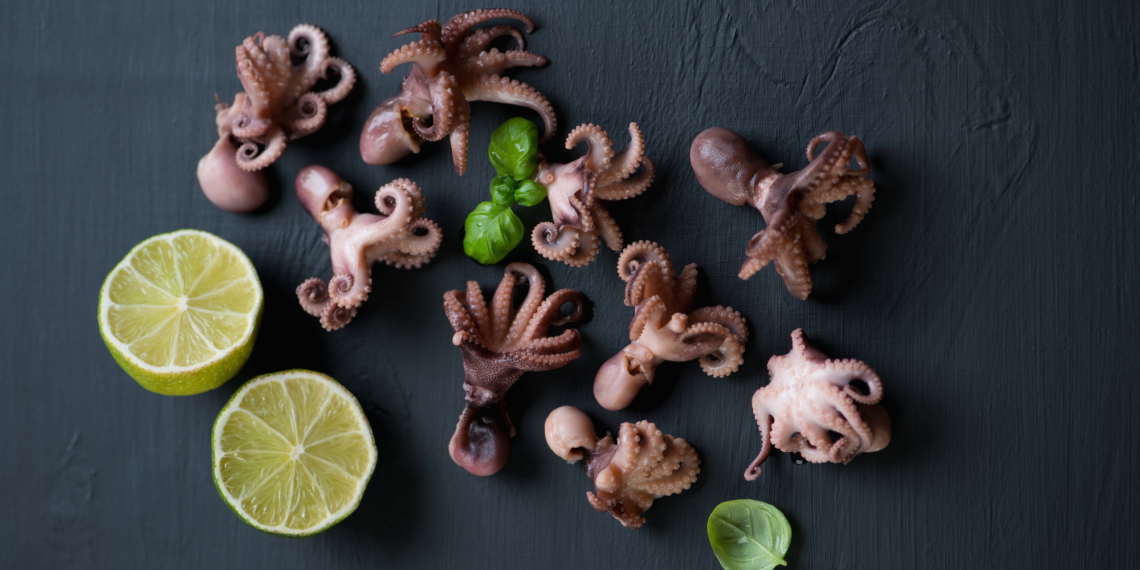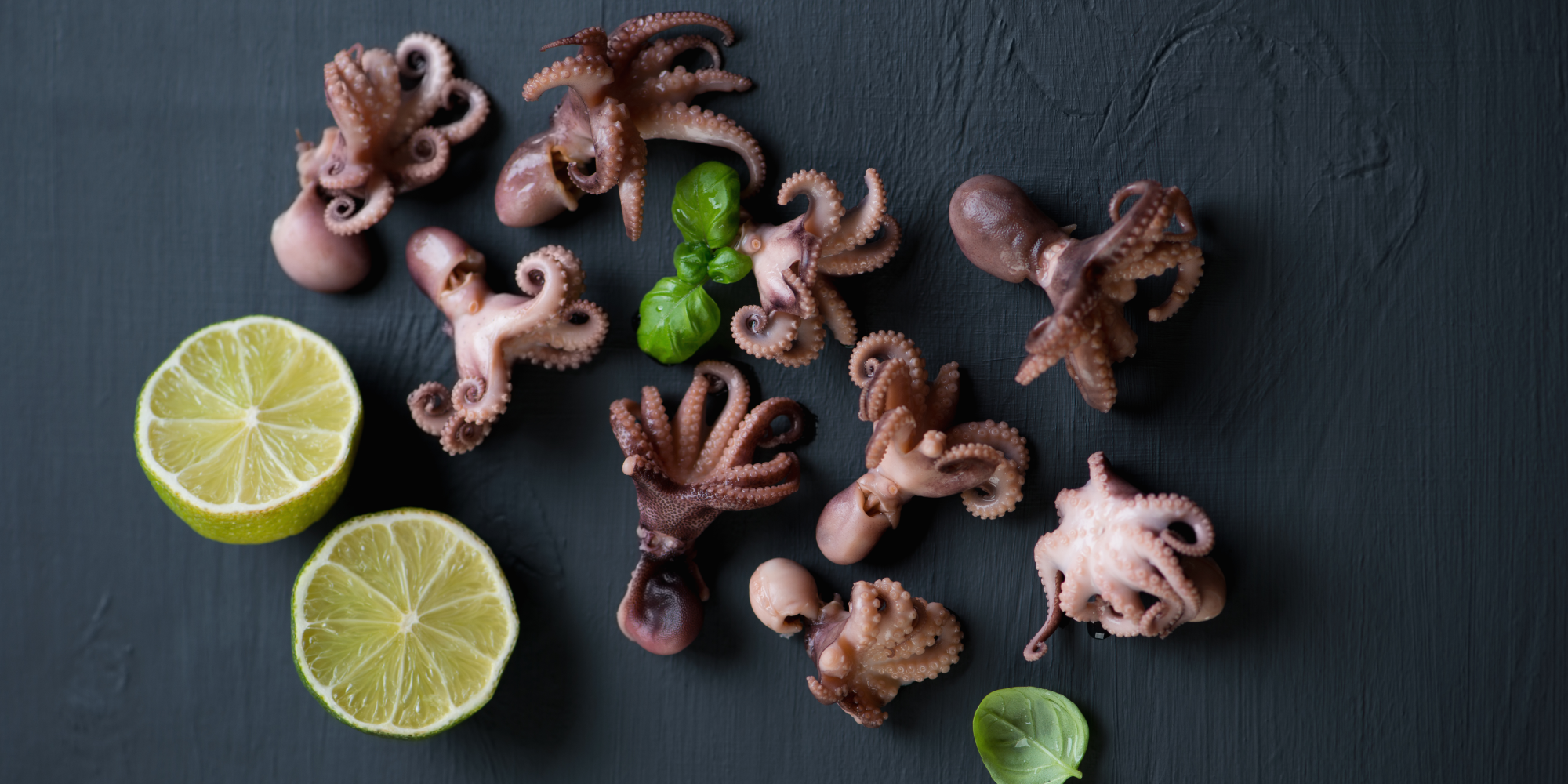
Octopus,facts
Octopus cooked
- Octopus is the largest member of the cephalopod family (which also includes squid and cuttlefish).
- The name octopus is derived from the ancient Greeks, which means eight feet.
- Octopus head contains all of the organs.
- Octopus releases purple to black ink to escape from predators.
- Octopus is chameleon-like and adopts the color of its environment, so can be found in a range of colors including grey, pink, black, brown, and beige.
- Octopus is nutritious, with loads of lean muscle and plenty of minerals.
- Octopus is an essential source of amino acids - histidine, leucine, and lysine.
- Octopus is an excellent source of vitamin B12, iron and selenium.
- The octopus contains calcium, magnesium, phosphorus, potassium, zinc and Omega-3 fatty acids.
- Octopus is not cholesterol-free and has a lot of cholesterol.
- A fresh or cooked octopus will hold in a hermetically sealed container in the refrigerator for about two days and in the freezer for up to three months.
- Like shrimp and squid, octopus freezes well and this storage method doesn’t damage either its taste or texture.


 Bulgarian
Bulgarian 